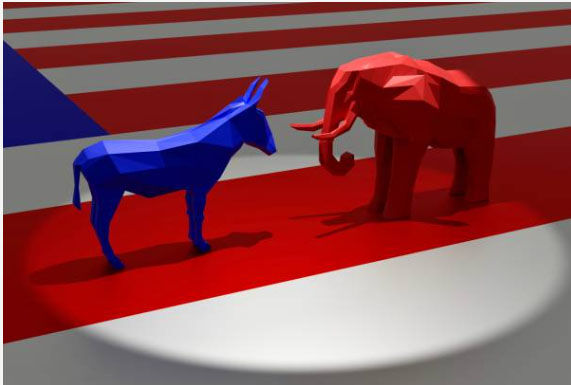‘Trophy’ hunting ban poses a ballot cat-astrophe | DUFFY

Sean Duffy
It’s time to let the cat out of the bag regarding the “trophy hunting ban” on this year’s ballot.
Anti-hunting advocates are proposing to ban the hunting of mountain lions, bobcat and lynx, because, they say, these big cats are pursued solely for sport, not for food. The proponents hope you will limit your consideration to “aww, they’re cute and of course these critters shouldn’t be hunted.”
If you do that, you are making a mistake.
The measure’s language is carefully tailored for the vast majority of voters whose knowledge of mountain lions or bobcats is limited to either a nature show or the occasional news report of a marauding cat dining out in the suburbs.
In fact, even the name of the proponents’ group — “Cats Aren’t Trophies” — makes one imagine the horror of Fluffy the housecat mounted over the fireplace.
There are layers of problems with this initiative that require a far deeper dive.
First, is the direct economic impact. Common Sense Institute has produced a valuable economic analysis detailing the state’s revenue loss from $410,000 in mountain lion and bobcat licenses. Most of the target voters won’t care about a haircut for a state agency they probably never heard of.
Stay up to speed: Sign up for daily opinion in your inbox Monday-Friday
But the effects are far more widespread, and even if you are a tofu-eating Front Range transplant from California, you’re not going to like what this measure will do to Colorado.
First, banning the hunting of big cats will result in a significant increase in their population. According to CSI, it’s 443 more mountain lions in the first year, or about 10% of the current estimated population.
These cats are going to go someplace.
They may end up on farms and ranches, searching for a livestock supper. Even under the language of the initiative, they may be fair game for landowners.
Or they end up in backyards, licking their lips after dining on the neighborhood bichon frise. And they will either be removed to their habitat or euthanized.
This is why it is unwise to inject a voter initiative that lacks sound science or nuance into the highly complex realm of managing wildlife populations in a fast-growing state. In fact, you already pay experts who diligently monitor and control the numbers of big cats and other species — a process that, as the Department of Wildlife explains, includes hunting. No one is complaining these experts are failing at their jobs.
There is also a downstream effect on elk and deer hunting, which the proponents clearly don’t want to discuss. They pay disingenuous lip service to contrasting hunting for food versus trophy hunting as a way of claiming they would never want to limit elk and deer hunting.
But it will.
Hunting is an $850 million industry in our state, according to the Colorado Wildlife Council. For elk alone, broad statistics show, on an annual basis, there are about 250,000 hunters in or visiting Colorado, harvesting 50,000 elk.
But the 443 mountain lions escaping the taxidermist are going to feast on tens of thousands of elk and deer. Which means if the mountain lion is eating that elk, you’re not.
The remaining elk and deer population will be far harder to find, not only reducing revenue to the state from these hunters, but also having a downstream effect on the lodging, dining, guiding and outfitting industry, costing millions and threatening thousands of Colorado jobs. And Wyoming and Montana, just a drive away, aren’t engaging in “ballot-box biology.”
The truth is the proponents of the trophy hunting ban don’t like hunting at all, since the process of harvesting a mountain lion is no more “cruel and inhumane” than taking an elk. Even a whisper that hunters — to use the current Democratic parlance — are “weird” is a real problem for their measure.
That’s why they want to cynically carve out a niche part of the hunting community, who pursue mountain lion or bobcat, and start by banning that quarry — the effects on local communities, the economy and the highly effective work of state wildlife experts be damned.
If this passes, Coloradans will let the tofu-eaters’ noses under the tent at the hunting camp, and we all, whether hunters or not, will regret it.
Sean Duffy, a former deputy chief of staff to Gov. Bill Owens, is a communications and media relations strategist and ghostwriter based in the Denver area.











